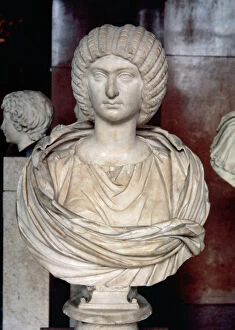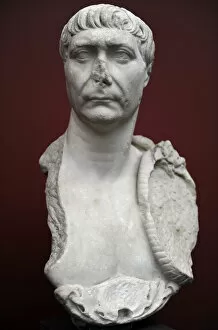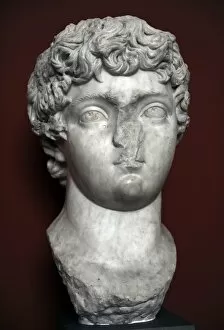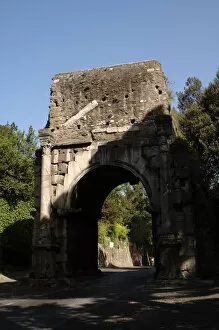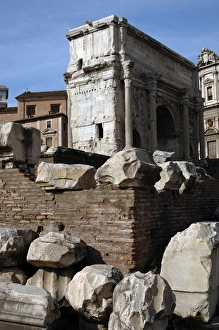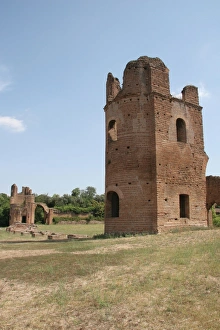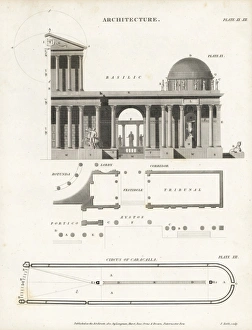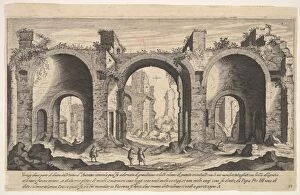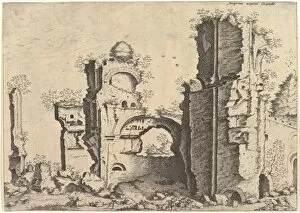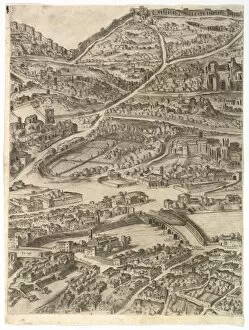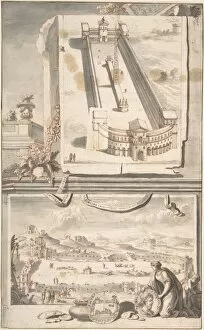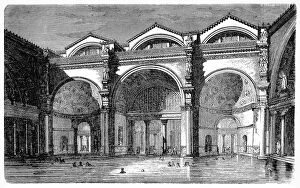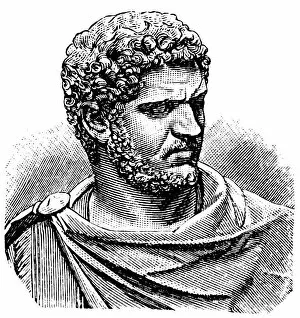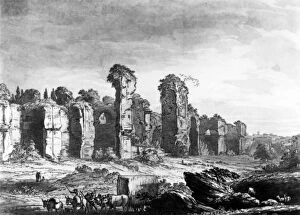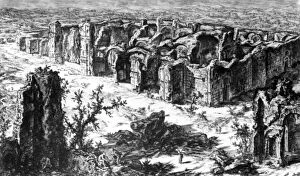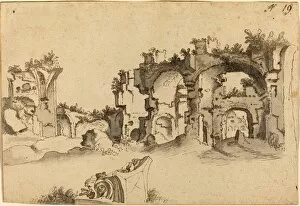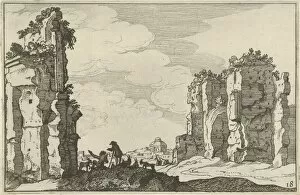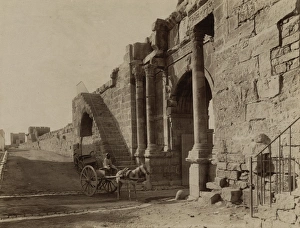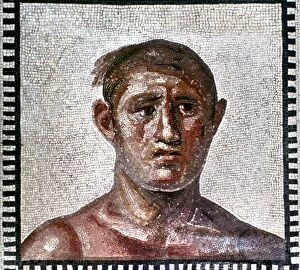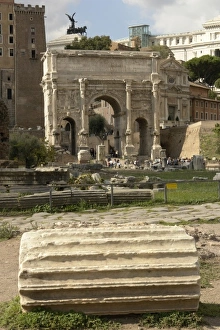Caracalla Collection (page 3)
"Caracalla: The Legacy of a Roman Emperor" Step into the ancient city of Rome with this captivating lithograph from 1878, showcasing the intricate city map
All Professionally Made to Order for Quick Shipping
"Caracalla: The Legacy of a Roman Emperor" Step into the ancient city of Rome with this captivating lithograph from 1878, showcasing the intricate city map. Among its prominent landmarks are the Baths of Caracalla, an architectural marvel that stood in Rome, Italy. Transport yourself back to pre-1900 as you gaze upon another image capturing the grandeur and magnificence of these historic baths. Immerse yourself further into history with a reconstruction of the Great Hall within the Baths of Caracalla. Marvel at its impressive scale and imagine what life was like during its heyday in the 3rd century. Venturing beyond Rome's borders, discover remnants of Caracalla's reign in Algeria. The Caracalla arch stands proudly amidst the ruins of Cuicul, offering a glimpse into his influence far beyond Italy's shores. Explore not only his architectural achievements but also delve into his personal life through art. Witness "The Emperor Severus Rebuking his Son, Caracalla, " an oil painting depicting their tumultuous relationship and power struggles during their time together. Capture a moment frozen in time with a black-and-white photograph titled "Roma: Nelle Terme di Caracalla. " This evocative image transports you to those very baths where Romans once gathered for relaxation and socializing. Coins tell stories too - behold an Aureus portraying Emperor Caracalla himself issued by none other than him. Another Denarius coin showcases his likeness from 213 AD; both coins serve as testaments to his reign and lasting impact on Roman currency. Carve your path through history as you uncover more about this enigmatic ruler who left behind such remarkable legacies - from monumental structures like the Baths to artistic representations that shed light on both his public persona and private struggles.


